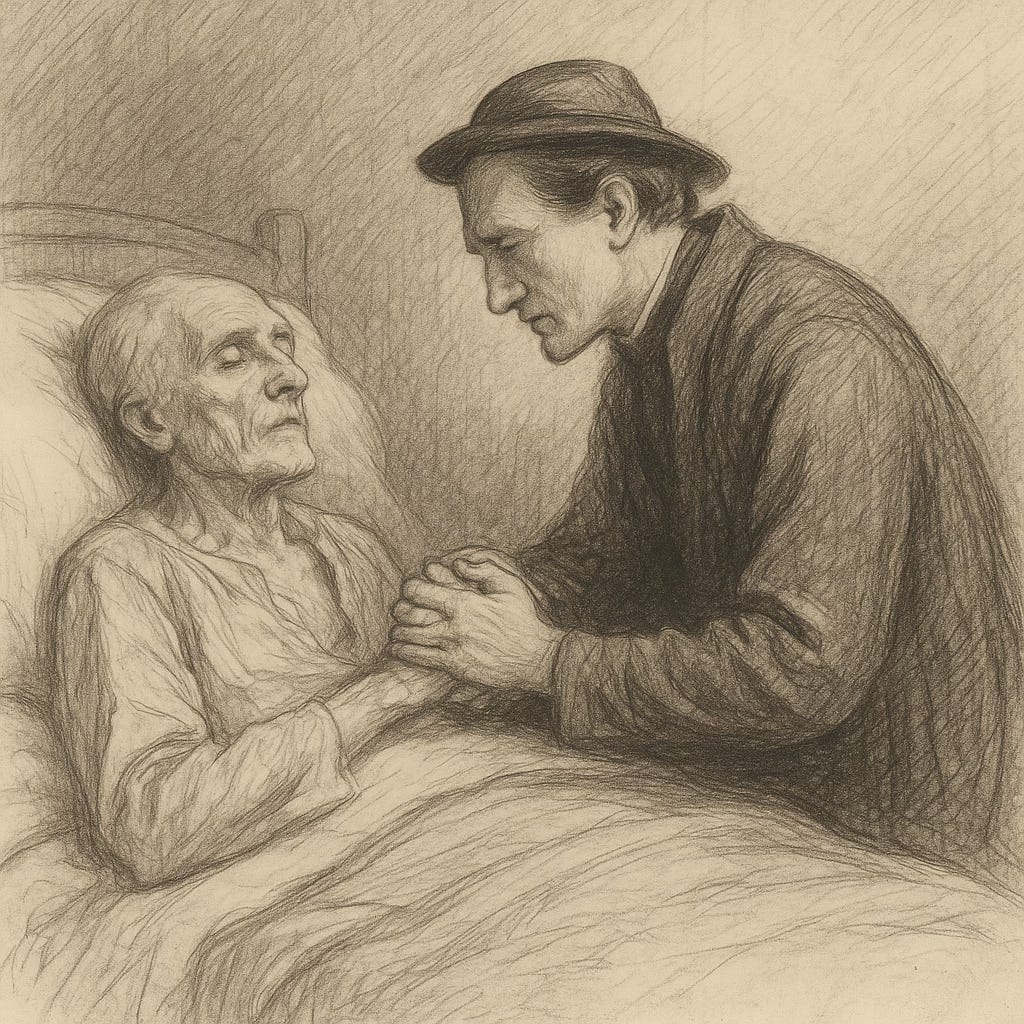The Member of the Convention
Hugo's Conventionary and the progress of the human race
The Infinite Is
“O thou! O ideal! Thou alone existest!”
— Victor Hugo, Les Misérables

In the quiet hours before death, literature sometimes becomes a kind of translation—words doing the work that faith or philosophy cannot. When Hugo’s dying man lifts his gaze and says, “The infinite is. He is there,” the moment transcends creed. It is less about theology than about awareness—the human instinct to name the vastness that waits beyond comprehension.
Death, in this sense, is not an erasure but an encounter. Hugo’s character does not beg for life or curse its loss; he recognizes the infinite as presence. The boundaries of the self dissolve, and what remains is consciousness meeting its source.
When I first read this passage, I thought of how language itself reaches for the ineffable. The Bishop listens, shocked not by heresy but by the sudden nearness of truth. In that nearness, the dying man does not vanish—he expands.
The Bishop understood, as Hugo wrote, that time was pressing. Arriving at the scene in his capacity as a priest, “from extreme coldness [he] passed by degrees to extreme emotion; he gazed at those closed eyes, he took that wrinkled, aged, and ice-cold hand in his, and bent over the dying man.”
“This hour is the hour of God.”
The dying man then opened his eyes, “with a slowness which probably arose more from his dignity of soul than from the failing of his strength.” He entered on a soliloquy, as if to explain the raison d’être of his life: “I have always upheld the march forward of the human race.” He had done his duty according to his powers and “all the good” that he was able.
“Now I am eighty-six years old; I am on the point of death. What is it that you have come to ask of me?”
“Your blessing,” said the Bishop.
And he knelt down. When the Bishop raised his head again, the face of the revolutionary had become august. He had just expired.
But the words remain—carrying forward like breath that refuses to vanish. Hugo’s dying man affirms not only the infinite but the continuity of striving: the march forward of the human race. In the light of that idea, death is not an ending but a release into motion, a widening of perspective. The witness becomes the inheritor; the living continue the work that the dying articulate in their final clarity.
Hugo seems to tell us that to confront death is to see more clearly the life that endures beyond form. The I that says “The infinite is” belongs not to the body but to the awareness that witnesses both living and dying.
Or, put another way:
“Death doesn’t discriminate
Between the sinners and the saints.
It takes and it takes and it takes—
And we keep living anyway.”
— Leslie Odom Jr., “Wait for It,” Hamilton (2015)
What endures is not the absence of loss, but the persistence of meaning—the quiet vow that even in silence, we will keep listening, and keep moving forward.

